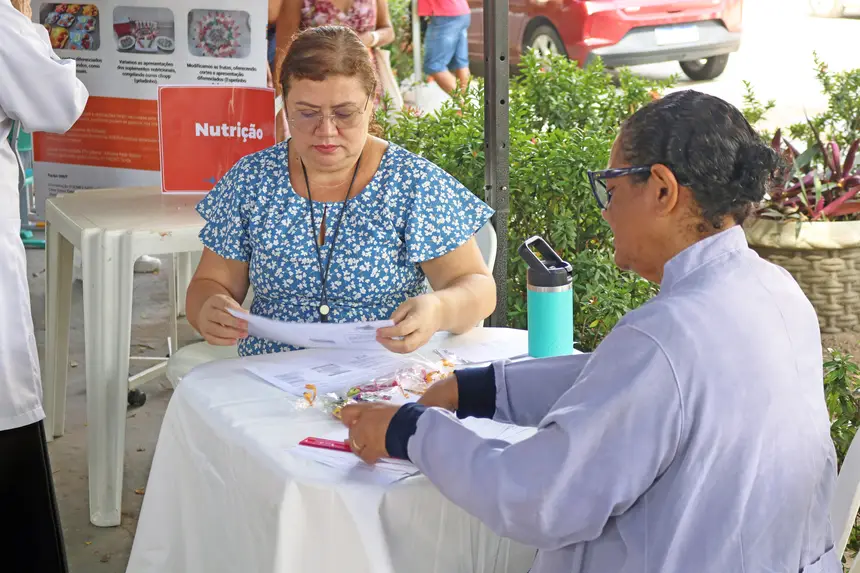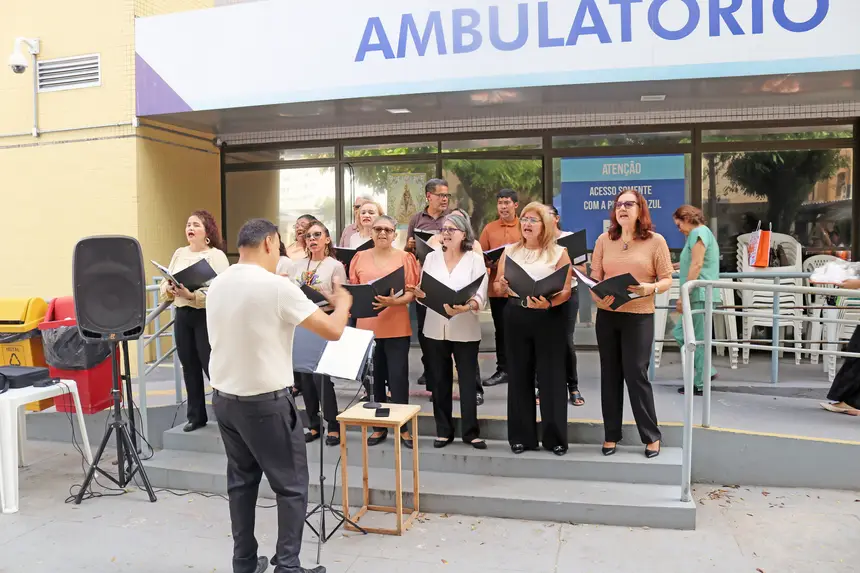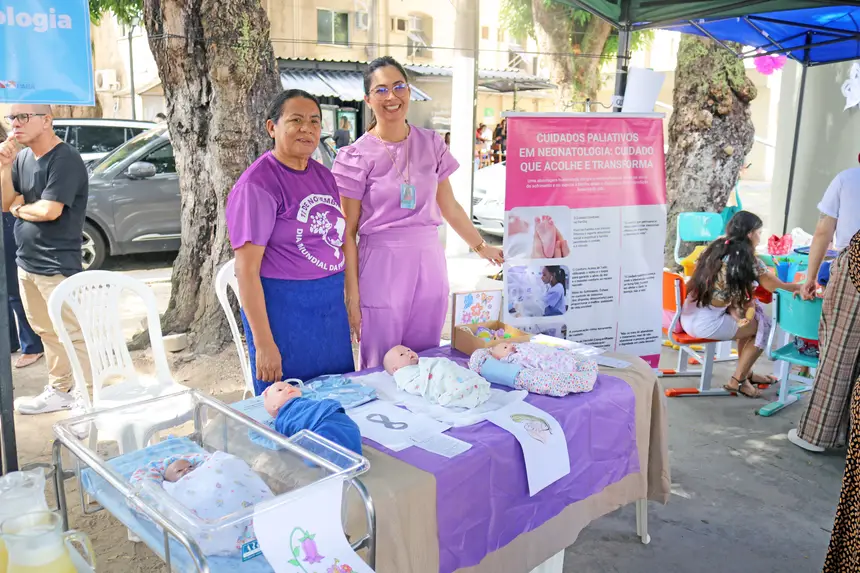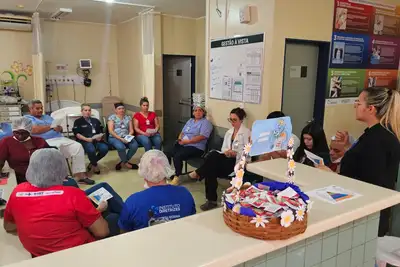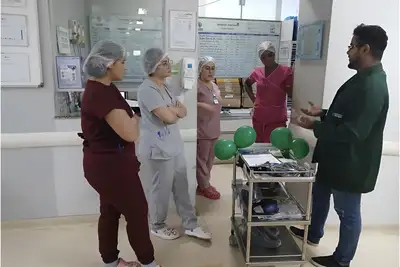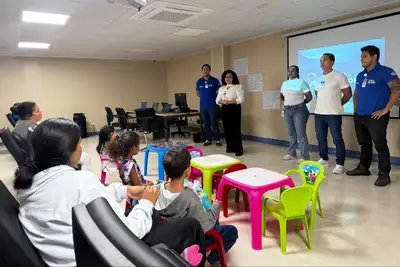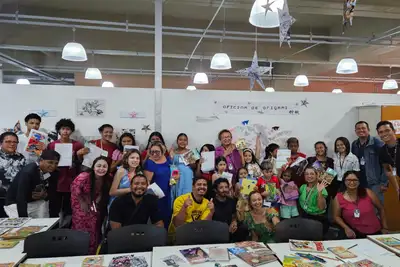Santa Casa do Pará holds event on palliative care
The program includes the participation of staff and users of the institution
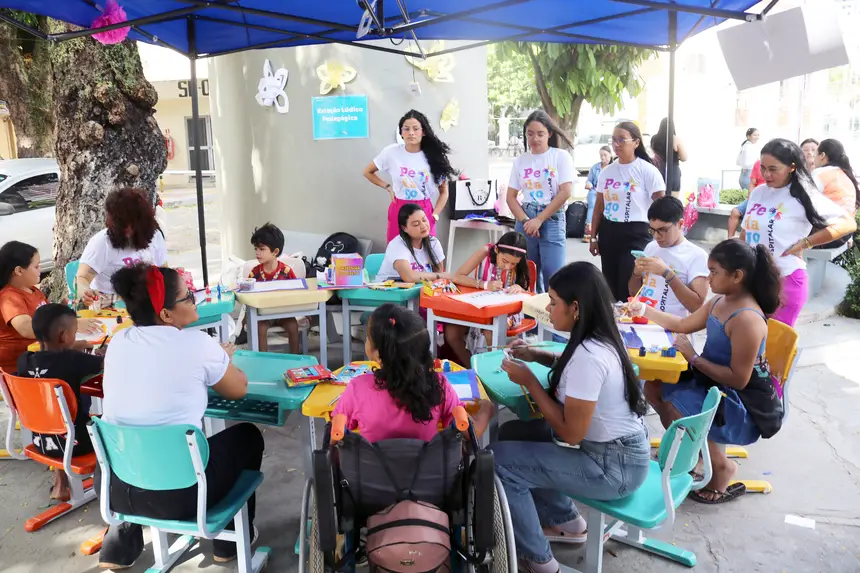
The Santa Casa do Pará Foundation is holding a special program this Friday (24) that marks the professional work in palliative care offered to the institution's users. The event, which began with a performance by the Coral Saúde e Vida Maria Helena Franco and speeches from members of the multidisciplinary team, continues with care and interactions with users until the early evening.
The pilot project on Palliative Care (PC) at the Santa Casa do Pará Foundation started in 2019 and was reinforced in 2024 as part of the institution's strategic planning. According to the World Health Organization (WHO), palliative care refers to multidisciplinary assistance aimed at improving the quality of life of patients and their families, addressing issues associated with life-threatening illnesses through the prevention and relief of suffering by means of early identification and impeccable assessment and treatment of pain and other physical, psychosocial, and even spiritual problems.
Carolina Paiva, a nurse at the Santa Casa Foundation who works in pediatric palliative care, emphasizes that the action is an approach within a process of humanization, bringing hope during the limited time that the patient has ahead. "We can provide more time with family, time for themselves, and they do not focus on the disease, but on life, whether it is the long time they have or the short time they have left."
"We notice that when we approach the family and even the patient, initially there is some withdrawal, but then they begin to understand that we are not there just to talk about death, but also to talk about life, to talk about who that patient was, the importance of their story, so that they and their family can understand that their life was as important as the time they still have. So we try to provide moments of good memories, moments of hope and show the family that the patient is as important as they will be in the future, should they pass away," explains Carolina.
Since September 2021, the expansion of PC has resumed with Santa Casa being trained through the Institutional Development Support Program of the Unified Health System (Proadi Sus) for Palliative Care, covering the hospitalization units and the liver outpatient clinic of the institution.
For Thiago Gama, a palliative care physician at the institution, the process of palliative care in a hospital is fundamental. "The first is to relieve suffering. It is to enable this family, this patient, an approach that can embrace the suffering in the face of such intense illness. So when you offer palliative care to this patient, you can reduce costs for the institution itself. But the main focus, of course, is to relieve the patient's suffering."
"I believe that palliative care rescues the essence of medicine, which is the art of caring. I have no doubt that it is revolutionary to think about and provide our patients and the institution itself with this multiprofessional act in the hospital. We are trying to gain traction here in the state. Recently, a national palliative care policy was published, and we are trying to replicate this here in Pará," points out the doctor.
Relevance - Although they have been advocated for over 30 years by the international entity and developed in some health institutions throughout Brazil, PC was only established as a National Policy, within the SUS framework, at the end of 2023. The main groups of diseases that benefit from palliative care are those of patients with cancer, chronic heart, lung, kidney, and liver diseases, and the group of patients with sequelae, dementia, and neurodegenerative diseases.
Thiago Gama, a doctor at Santa Casa, says that the etymology of 'palliative' carries a very negative idea, due to the general population associating palliative care with death. "And our work is to try to deconstruct this idea that palliative care is related to death, but rather to life. It is to provide this patient with relief from suffering in the face of illness so that they can live as functionally as possible," he explains.
"We carry out a daily, constant work in our midst. A small, steady effort aimed at deconstructing this thought. It is not easy, but we are willing to try to prove otherwise. And this process of welcoming is enchanting, where they realize how important this approach is in their lives," emphasizes the doctor.


